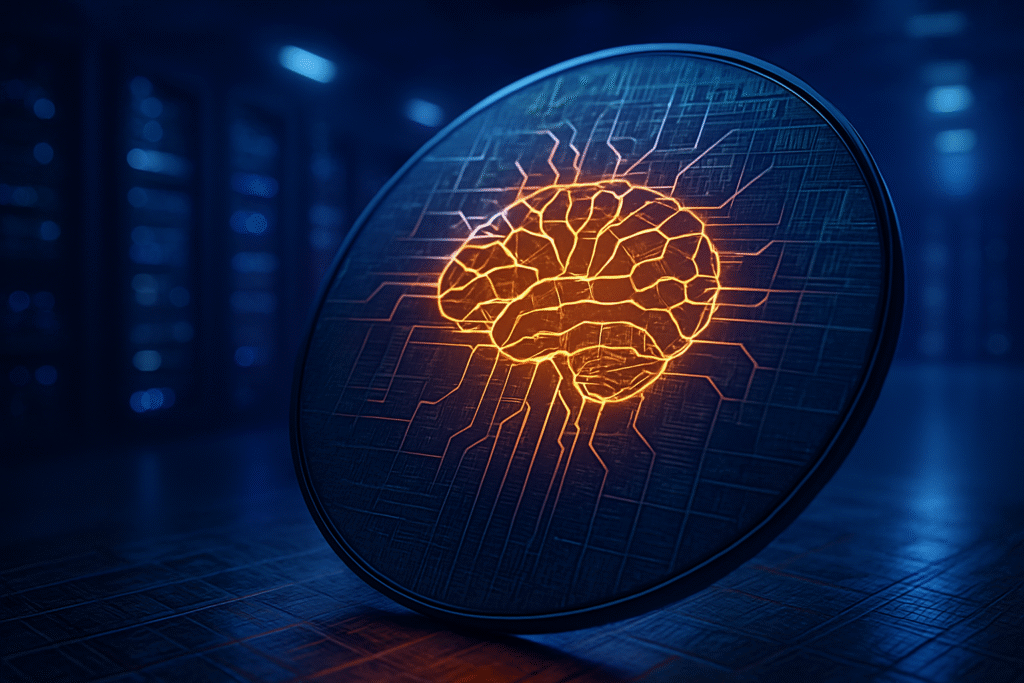
The relentless march of artificial intelligence is reshaping industries, driving unprecedented demand for powerful, reliable hardware. At the heart of this revolution are AI chips and data center components, whose performance and longevity are paramount. Yet, the journey from silicon wafer to a fully operational AI system is fraught with potential pitfalls. This is where robust semiconductor test and burn-in processes emerge as the unseen guardians, playing a crucial, often overlooked, role in ensuring the integrity and peak performance of the very infrastructure powering the AI era. In an environment where every millisecond of downtime translates to significant losses and every computational error can derail complex AI models, the immediate significance of these rigorous validation procedures has never been more pronounced.
The Unseen Battle: Ensuring AI Chip Reliability in an Era of Unprecedented Complexity
The complexity and high-performance demands of modern AI chips and data center components present unique and formidable challenges for ensuring their reliability. Unlike general-purpose processors, AI accelerators are characterized by massive core counts, intricate architectures designed for parallel processing, high bandwidth memory (HBM) integration, and immense data throughput, often pushing the boundaries of power and thermal envelopes. These factors necessitate a multi-faceted approach to quality assurance, beginning with wafer-level testing and culminating in extensive burn-in protocols.
Burn-in, a critical stress-testing methodology, subjects integrated circuits (ICs) to accelerated operational conditions—elevated temperatures and voltages—to precipitate early-life failures. This process effectively weeds out components suffering from "infant mortality," latent defects that might otherwise surface prematurely in the field, leading to costly system downtime and data corruption. By simulating years of operation in a matter of hours or days, burn-in ensures that only the most robust and stable chips proceed to deployment. Beyond burn-in, comprehensive functional and parametric testing validates every aspect of a chip's performance, from signal integrity and power efficiency to adherence to stringent speed and thermal specifications. For AI chips, this means verifying flawless operation at gigahertz speeds, crucial for handling the massive parallel computations required for training and inference of large language models and other complex AI workloads.
These advanced testing requirements differentiate significantly from previous generations of semiconductor validation. The move to smaller process nodes (e.g., 5nm, 3nm) has made chips denser and more susceptible to subtle manufacturing variations, leakage currents, and thermal stresses. Furthermore, advanced packaging techniques like 2.5D and 3D ICs, which stack multiple dies and memory, introduce new interconnect reliability challenges that are difficult to detect post-packaging. Initial reactions from the AI research community and industry experts underscore the critical need for continuous innovation in testing methodologies, with many acknowledging that the sheer scale and complexity of AI hardware demand nothing less than zero-defect tolerance. Companies like Aehr Test Systems (NASDAQ: AEHR), specializing in high-volume, parallel test and burn-in solutions, are at the forefront of addressing these evolving demands, highlighting an industry trend towards more thorough and sophisticated validation processes.
The Competitive Edge: How Robust Testing Shapes the AI Industry Landscape
The rigorous validation of AI chips and data center components is not merely a technical necessity; it has profound competitive implications, shaping the market positioning and strategic advantages of major AI labs, tech giants, and even burgeoning startups. Companies that prioritize and invest heavily in robust semiconductor testing and burn-in processes stand to gain significant competitive advantages in a fiercely contested market.
Leading AI chip designers and manufacturers, such as NVIDIA (NASDAQ: NVDA), Advanced Micro Devices (NASDAQ: AMD), and Intel (NASDAQ: INTC), are primary beneficiaries. Their ability to consistently deliver high-performance, reliable AI accelerators is directly tied to the thoroughness of their testing protocols. For these giants, superior testing translates into fewer field failures, reduced warranty costs, enhanced brand reputation, and ultimately, greater market share in the rapidly expanding AI hardware segment. Similarly, the foundries fabricating these advanced chips, often operating at the cutting edge of process technology, leverage sophisticated testing to ensure high yields and quality for their demanding clientele.
Beyond the chipmakers, cloud providers like Amazon (NASDAQ: AMZN) Web Services, Microsoft (NASDAQ: MSFT) Azure, and Google (NASDAQ: GOOGL) Cloud, which offer AI-as-a-Service, rely entirely on the unwavering reliability of the underlying hardware. Downtime in their data centers due to faulty chips can lead to massive financial losses, reputational damage, and breaches of critical service level agreements (SLAs). Therefore, their procurement strategies heavily favor components that have undergone the most stringent validation. Companies that embrace AI-driven testing methodologies, which can optimize test cycles, improve defect detection, and reduce production costs, are poised to accelerate their innovation pipelines and maintain a crucial competitive edge. This allows for faster time-to-market for new AI hardware, a critical factor in a rapidly evolving technological landscape.
Aehr Test Systems (NASDAQ: AEHR) exemplifies an industry trend towards more specialized and robust testing solutions. Aehr is transitioning from a niche player to a leader in the high-growth AI semiconductor market, with AI-related revenue projected to constitute a substantial portion of its total revenue. The company provides essential test solutions for burning-in and stabilizing semiconductor devices in wafer-level, singulated die, and packaged part forms. Their proprietary wafer-level burn-in (WLBI) and packaged part burn-in (PPBI) technologies are specifically tailored for AI processors, GPUs, and high-performance computing (HPC) processors. By enabling the testing of AI processors at the wafer level, Aehr's FOX-XP and FOX-NP
and FOX-NP systems can reduce manufacturing costs by up to 30% and significantly improve yield by identifying and removing failures before expensive packaging. This strategic positioning, coupled with recent orders from a large-scale data center hyperscaler, underscores the critical role specialized testing providers play in enabling the AI revolution and highlights how robust testing is becoming a non-negotiable differentiator in the competitive landscape.
systems can reduce manufacturing costs by up to 30% and significantly improve yield by identifying and removing failures before expensive packaging. This strategic positioning, coupled with recent orders from a large-scale data center hyperscaler, underscores the critical role specialized testing providers play in enabling the AI revolution and highlights how robust testing is becoming a non-negotiable differentiator in the competitive landscape.
The Broader Canvas: AI Reliability and its Societal Implications
The meticulous testing of AI chips extends far beyond the factory floor, weaving into the broader tapestry of the AI landscape and influencing its trajectory, societal impact, and ethical considerations. As AI permeates every facet of modern life, the unwavering reliability of its foundational hardware becomes paramount, distinguishing the current AI era from previous technological milestones.
This rigorous focus on chip reliability is a direct consequence of the escalating complexity and mission-critical nature of today's AI applications. Unlike earlier AI iterations, which were predominantly software-based or relied on general-purpose processors, the current deep learning revolution is fueled by highly specialized, massively parallel AI accelerators. These chips, with their billions of transistors, high core counts, and intricate architectures, demand an unprecedented level of precision and stability. Failures in such complex hardware can have catastrophic consequences, from computational errors in large language models that generate misinformation to critical malfunctions in autonomous vehicles that could endanger lives. This makes the current emphasis on robust testing a more profound and intrinsic requirement than the hardware considerations of the symbolic AI era or even the early days of GPU-accelerated machine learning.
The wider impacts of ensuring AI chip reliability are multifaceted. On one hand, it accelerates AI development and deployment, enabling the creation of more sophisticated models and algorithms that can tackle grand challenges in healthcare, climate science, and advanced robotics. Trustworthy hardware allows for the deployment of AI in critical services, enhancing quality of life and driving innovation. However, potential concerns loom large. Inadequate testing can lead to catastrophic failures, eroding public trust in AI and raising significant liabilities. Moreover, hardware-induced biases, if not detected and mitigated during testing, can be amplified by AI algorithms, leading to discriminatory outcomes in sensitive areas like hiring or criminal justice. The complexity of these chips also introduces new security vulnerabilities, where flaws could be exploited to manipulate AI systems or access sensitive data, posing severe cybersecurity risks.
Economically, the demand for reliable AI chips is fueling explosive growth in the semiconductor industry, attracting massive investments and shaping global supply chains. However, the concentration of advanced chip manufacturing in a few regions creates geopolitical flashpoints, underscoring the strategic importance of this technology. From an ethical standpoint, the reliability of AI hardware is intertwined with issues of algorithmic fairness, privacy, and accountability. When an AI system fails due to a chip malfunction, establishing responsibility becomes incredibly complex, highlighting the need for greater transparency and explainable AI (XAI) that extends to hardware behavior. This comprehensive approach to reliability, encompassing both technical and ethical dimensions, marks a significant evolution in how the AI industry approaches its foundational components, setting a new benchmark for trustworthiness compared to any previous technological breakthrough.
The Horizon: Anticipating Future Developments in AI Chip Reliability
The relentless pursuit of more powerful and efficient AI will continue to drive innovation in semiconductor testing and burn-in, with both near-term and long-term developments poised to redefine reliability standards. The future of AI chip validation will increasingly leverage AI and machine learning (ML) to manage unprecedented complexity, ensure longevity, and accelerate the journey from design to deployment.
In the near term, we can expect a deeper integration of AI/ML into every facet of the testing ecosystem. AI algorithms will become adept at identifying subtle patterns and anomalies that elude traditional methods, dramatically improving defect detection accuracy and overall chip reliability. This AI-driven approach will optimize test flows, predict potential failures, and accelerate test cycles, leading to quicker market entry for new AI hardware. Specific advancements include enhanced burn-in processes with specialized sockets for High Bandwidth Memory (HBM), real-time AI testing in high-volume production through collaborations like Advantest and NVIDIA, and a shift towards edge-based decision-making in testing systems to reduce latency. Adaptive testing, where AI dynamically adjusts parameters based on live results, will optimize test coverage, while system-level testing (SLT) will become even more critical for verifying complete system behavior under actual AI workloads.
Looking further ahead, the long-term horizon (3+ years) promises transformative changes. New testing methodologies will emerge to validate novel architectures like quantum and neuromorphic devices, which offer radical efficiency gains. The proliferation of 3D packaging and chiplet designs will necessitate entirely new approaches to address the complexities of intricate interconnects and thermal dynamics, with wafer-level stress methodologies, combined with ML-based outlier detection, potentially replacing traditional package-level burn-in. Innovations such as AI-enhanced electrostatic discharge protection, self-healing circuits, and quantum chip reliability models are on the distant horizon. These advancements will unlock new use cases, from highly specialized edge AI accelerators for real-time inference in IoT and autonomous vehicles to high-performance AI systems for scientific breakthroughs and the continued exponential growth of generative AI and large language models.
However, significant challenges must be addressed. The immense technological complexity and cost of miniaturization (e.g., 2nm nodes) and billions of transistors demand new automated test equipment (ATE) and efficient data distribution. The extreme power consumption of cloud AI chips (over 200W) necessitates sophisticated thermal management during testing, while ultra-low voltage requirements for edge AI chips (down to 500mV) demand higher testing accuracy. Heterogeneous integration, chiplets, and the sheer volume of diverse semiconductor data pose data management and AI model challenges. Experts predict a period where AI itself becomes a core driver for automating design, optimizing manufacturing, enhancing reliability, and revolutionizing supply chain management. The dramatic acceleration of AI/ML adoption in semiconductor manufacturing is expected to generate tens of billions in annual value, with advanced packaging dominating trends and predictive maintenance becoming prevalent. Ultimately, the future of AI chip testing will be defined by an increasing reliance on AI to manage complexity, improve efficiency, and ensure the highest levels of performance and longevity, propelling the global semiconductor market towards unprecedented growth.
The Unseen Foundation: A Reliable Future for AI
The journey through the intricate world of semiconductor testing and burn-in reveals an often-overlooked yet utterly indispensable foundation for the artificial intelligence revolution. From the initial stress tests that weed out "infant mortality" to the sophisticated, AI-driven validation of multi-die architectures, these processes are the silent guardians ensuring the reliability and performance of the AI chips and data center components that power our increasingly intelligent world.
The key takeaway is clear: in an era defined by the exponential growth of AI and its pervasive impact, the cost of hardware failure is prohibitively high. Robust testing is not a luxury but a strategic imperative that directly influences competitive advantage, market positioning, and the very trustworthiness of AI systems. Companies like Aehr Test Systems (NASDAQ: AEHR) exemplify this industry trend, providing critical solutions that enable chipmakers and hyperscalers to meet the insatiable demand for high-quality, dependable AI hardware. This development marks a significant milestone in AI history, underscoring that the pursuit of intelligence must be underpinned by an unwavering commitment to hardware integrity.
Looking ahead, the synergy between AI and semiconductor testing will only deepen. We can anticipate even more intelligent, adaptive, and predictive testing methodologies, leveraging AI to validate future generations of chips, including novel architectures like quantum and neuromorphic computing. While challenges such as extreme power management, heterogeneous integration, and the sheer cost of test remain, the industry's continuous innovation promises a future where AI's boundless potential is matched by the rock-solid reliability of its underlying silicon. What to watch for in the coming weeks and months are further announcements from leading chip manufacturers and testing solution providers, detailing new partnerships, technological breakthroughs, and expanded deployments of advanced testing platforms, all signaling a steadfast commitment to building a resilient and trustworthy AI future.
This content is intended for informational purposes only and represents analysis of current AI developments.
TokenRing AI delivers enterprise-grade solutions for multi-agent AI workflow orchestration, AI-powered development tools, and seamless remote collaboration platforms.
For more information, visit https://www.tokenring.ai/.






